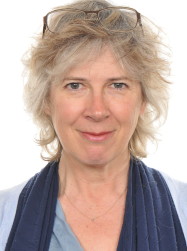Urban Ecology
Connection with green space is vital to the mental health and well-being of people in cities; active connections build on this and add physical health and social benefits through added community cohesion.
There is now a real urgency to meet the commitments of sustainable city policies and green infrastructure helps these. As well as the direct human benefits, they contribute to pollination, nutrient cycling, water purification, flood water management, local climate, air quality and soil fertility. Green spaces and urban tree plantings create a mosaic of habitats and promote biodiversity in urban settings by providing high-quality and varied habitats for many species. Even small sites can make big contributions to a habitat network and can serve as stepping stones between larger areas.
I contribute to several projects that provide pragmatic management advice and support stakeholder engagement to promote successful 'Green' in the grey context.
Entomology

With roots in pest and vector ecology and the insects of trees, my interests have grown wider. After six years mainly focussed on mosquitoes, these currently encompass:
- Insect conservation and promoting an understanding of the numerous roles that insects play.
- Insects as part of a sustainable food system - how food and agricultural waste can become part of inputs to protein co-production.
- Insects in urban areas - both acceptance and promotion.
Risk Management / Target Malaria

The Environmental Risk Management group of the CEP, formerly led by Professor John Mumford, contributes to many National and International projects and has particular interest in developing informative graphic methods that enable dissemination of risk profiles.
Through this I worked for six years (2012-2018) as part of the risk management team for Target Malaria (http://targetmalaria.org/) providing oversight and coordination to entomological field teams in several African countries. This improved quality and flow of data to provide comparable baselines for future evaluation of novel insect control strategies.
PhD: Arboreal Insect Community Ecology

Aspects of the ecology of willow aphids.
PhD work 2002 - Funded by the Game Conservancy Trust.
The development of renewable energy technologies to replace fossil fuels led to the planting of hybrid willows (Salix spp.) managed as short rotation coppice (SRC) crops, harvested every 3-5 years with the rootstock left in situ to regenerate.
My work, supervised by Prof. Simon Leather focussed on two potential pest species of willow aphid: Tuberolachnus salignus, the giant willow aphid and Pterocomma salicis, the black willow aphid. Both are large, aggregative, stem-feeding aphids and a heavy infestation can sheathe much of the stem surface of affected trees. In crops, new hosts are easy to locate and dispersal losses are minimised. Pterocomma salicis is abundantly predated and parasitised and facultatively tended by ants and T. salignus actively repels ants, has no known parasitoids and is predated at a very low level. The contrasts in the life histories of these species add to the versatility of this study system
A collaboration with Professor Mick Crawley enabled the quantification of some of the indirect effects of aphid feeding; those of honeydew deposition on host plants, on the field layer plant community and, in collaboration with Dr. Michael Bonkowski, on the microbial and faunal communities of the rhizosphere. Honeydew production generates a strong feedback between the stem feeding aphid guild and their host plant. The carbon deposition influences host flowering, plant architecture, sub-canopy species presence and abundance and has a profound influence on the structure and composition of the below ground food web, leading to a strong link between above and below ground communities.
Research student supervision

Ebba ENGSTRÖM - Green Infrastructure in viticultural settings (With C Howe)
Sally MUSUNGU - Climate change and banana pest biology (replacing John Mumford - with K Murray)
Thuy NGUYEN - Equity in urban greenspace (with A Collins)
Ben ROBERTS - Biodiversity in palm plantations (with V Savolainen)
Bethany REYNIERS - Climate change & the UK wine industry (with C Howe)
Recent completions
Esther ANAYA - Drivers of uptake in active urban transport (with A de Nazelle)
Karina CORADA-PEREZ - Urban green and air pollution (with A de Nazelle)

